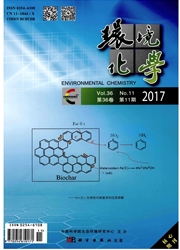

 中文摘要:
中文摘要:
抗生素在养殖、制药及医疗卫生行业中的广泛使用导致环境中的抗性细菌(Antibiotic resistance bacteria,ARB)及抗性基因(Antibiotic resistance genes,ARGs)浓度日益增加,甚至已经威胁到人体健康.本文在总结大量文献的基础上,阐述了ARB和ARGs在抗生素典型行业(包括养殖业、制药业和医疗卫生业)和市政污水中的污染特征,重点介绍了污水处理系统(Wastewater treatment plants,WWTPs)不同处理工艺对抗性细菌和抗性基因消长的影响及机制,最后针对污水处理系统中抗性基因的消减提出了新的见解,并对今后研究方向进行了展望.
 英文摘要:
英文摘要:
The widely use of antibiotics in the aquaculture, pharmaceutical and health care industry results in the increasing antibiotic resistance bacteria(ARB) and antibiotic resistance genes (ARGs) in the environment, even threatens human health. On the basis of previous literatures, this article summarizes the ARB and ARGs pollution characteristics of typical industries that produce and use antibiotics (include animal husbandry, pharmaceutical industry and medicine )and municipal wastewater. The treatment technologies which may possiblely influence the growth and decline of ARGs and ARB in different treatment units of wastewater treatment plants (WWTPs) are mainly discussed. In the end, a perspective was made on how to eliminate the ARGs in the effluent of the WWTPs.
 同期刊论文项目
同期刊论文项目
 同项目期刊论文
同项目期刊论文
 Persistence of Extracellular DNA in River Sediment Facilitates Antibiotic Resistance Gene Propagatio
Persistence of Extracellular DNA in River Sediment Facilitates Antibiotic Resistance Gene Propagatio Simultaneous Determination of Residual Antibiotics in Livestock Manure by Solid Phase Extraction-Ult
Simultaneous Determination of Residual Antibiotics in Livestock Manure by Solid Phase Extraction-Ult 期刊信息
期刊信息
